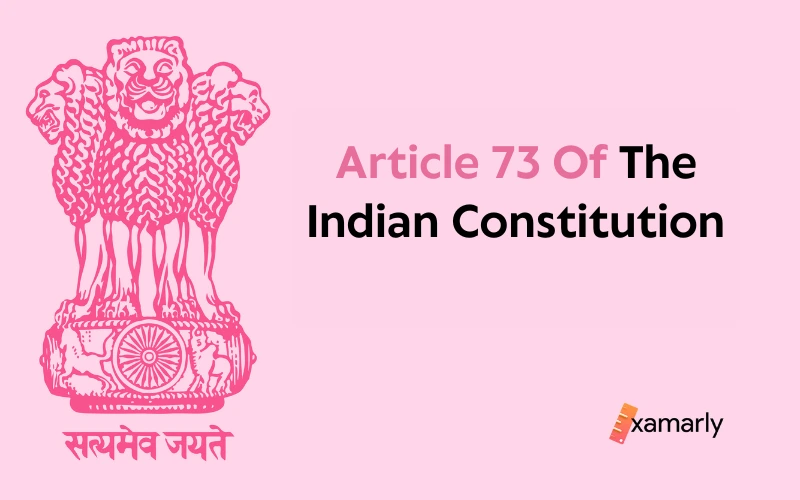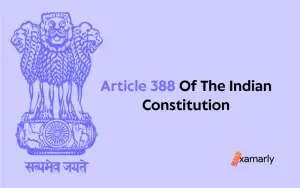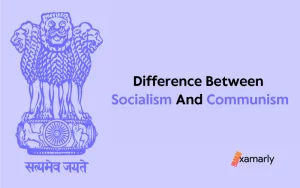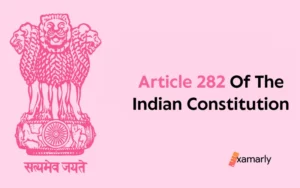The government of India is parliamentary. The executive is only accountable to and responsible to the legislature in this system of government.
Because the executive functions are ultimately concentrated in the Cabinet, it is also known as the Cabinet Government.
It was expressly specified in Article 73 of the Indian Constitution that the Union’s executive authority would be given to the parliament.
The said Article is in Part V of the Constitution, Chapter I (The Executive). “The Union” is the name of Part V.
This page gives you a Knowledgeable insight into Article 73 and presents the constitutional provisions enshrined in this article. This article is beneficial for the preparation of Indian Polity for competitive exams like UPSC.
What Is Article 73 Of The Indian Constitution?
- The executive power of the Union must be subject to the provisions of the Indian Constitution and shall extend to the following:
- to topics about which Parliament has the authority to frame laws; and
- to exercise of those authorities, rights, and jurisdictions that the Government of India may exercise in accordance with any treaty or agreement.
Except as specifically specified in this Constitution or in a law passed by Parliament, the executive power referred to in subclause (a) shall not, in any State, extend to topics over which the State Legislature also has the authority to enact laws.
- Until otherwise stated by Parliament, a State and any officer or authority thereof may, notwithstanding anything in this article, continue to exercise such executive power or functions as the State or officer or authority thereof might exercise immediately prior to the beginning of this Constitution on issues with respect to which Parliament has the ability to make laws for that State.
Constituent Assembly Debates
On December 29 and 30, 1948, a discussion of Draft Article 60 or Article 73 of the Constitution of India took place.
A member proposed an amendment to strike clause 1 from the text. Additionally, he wanted the amendment of clause 1 to grant the Union’s executive authority to topics pertaining to the Union List.
With his revisions, the central government would not be given precedence in decisions involving the Concurrent list and provincial authority would be safeguarded.
Another member who agreed said that although the Parliament has legislative power on matters relating to the Concurrent List, this should not be interpreted as the Union Government has executive authority over these matters.
Instead, this authority must be given to the State government for effective and good governance.
Another participant voiced strong opposition to this piece. He emphasized that “regional autonomy” was in use even during colonial authority and that departing from this idea would lead to “totalitarianism.”
A Drafting Committee member objected to the revisions. He advised the Assembly to avoid taking a theoretical stance on federalism because the essence of it will emerge in India over time.
A clear and accurate division of executive responsibilities would also be assured by the proviso to clause 1.
The Chairman of the Drafting Committee also clarified the broad principles.
- First, the states usually had the authority to carry out laws passed by the Parliament regarding the Concurrent List.
- Second, the Parliament could only exercise executive authority over certain topics in rare situations.
- He cited instances of the Australian federal system to support the proviso.
- He added that the Central Government would be able to implement social issue-related laws thanks to this proviso.
- When states were hesitant to enforce social laws, this would guarantee their execution.
The change was not implemented to the provisions of Article 73 and was adopted by the assembly on December 30, 1948.
For Further Readings:
Conclusion
The most notable legal entity that carries out laws under the Indian Constitution is the Union Executive. The scope of the Union’s executive power is outlined in Article 73 of the Indian Constitution. It makes it clear that the parliament will be given executive responsibility over the Union. According to the said Article, the executive authority has power over matters that are under the purview of the Union legislative.
FAQs On Article 73 Of The Indian Constitution
What Does Article 73 Mean?
The Union’s executive power is set forth in detail in Article 73. This article asserts that the Parliament has the authority to create laws. In accordance with any treaty or agreement, it may exercise the same rights, powers, and jurisdiction as the Government of India.
Which Part Of The Indian Constitution Contains Article 73?
Part V of the Indian Constitution features Article 73. The Union-related subjects are covered in Part V of India’s constitution.
What Do You Mean By Union Executive?
The Union Executive is the most notable legal entity that implements laws in accordance with the Indian Constitution.






